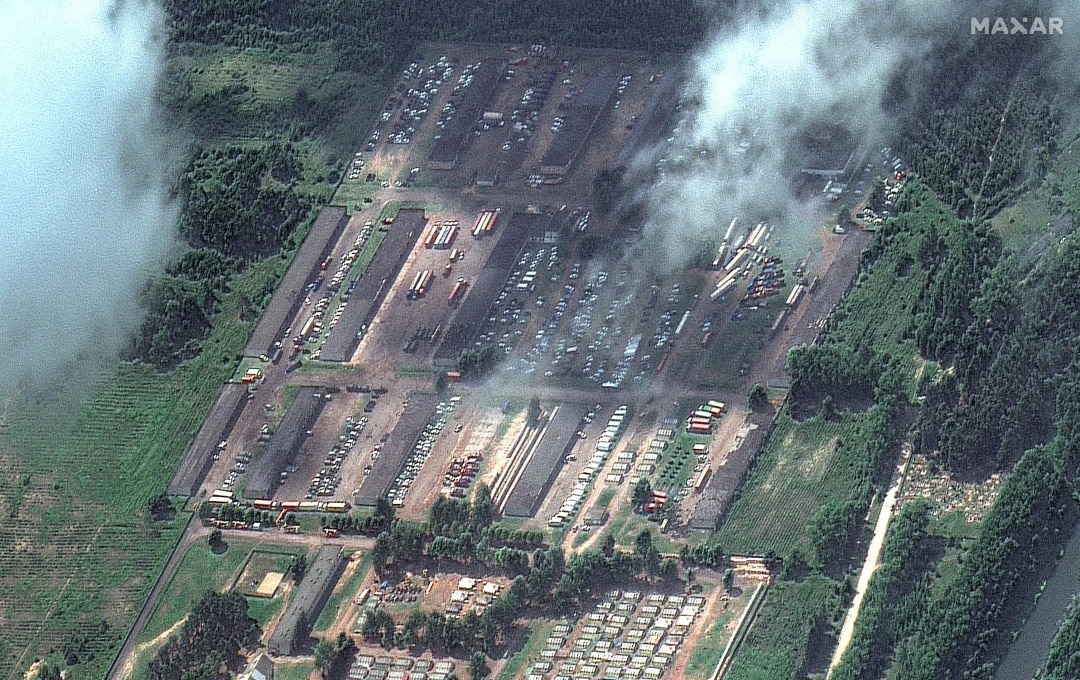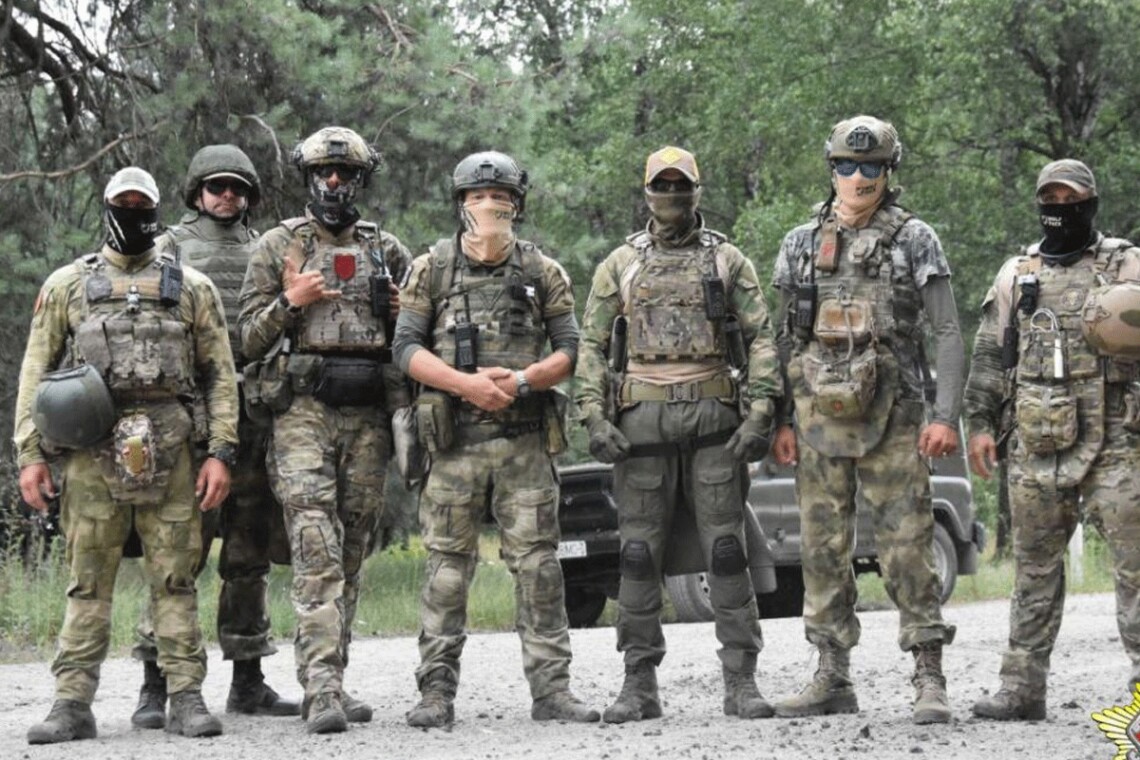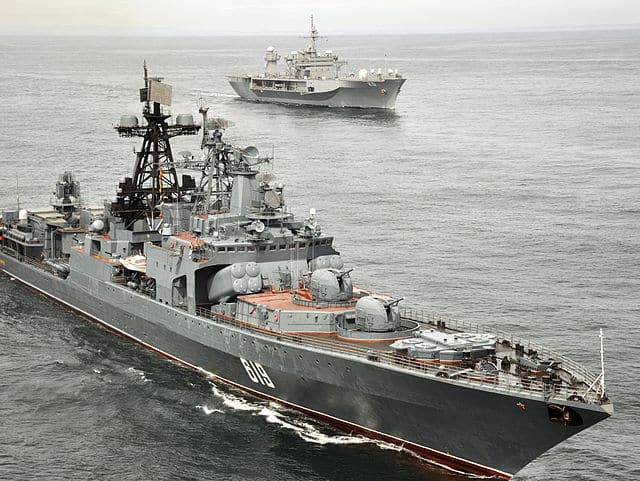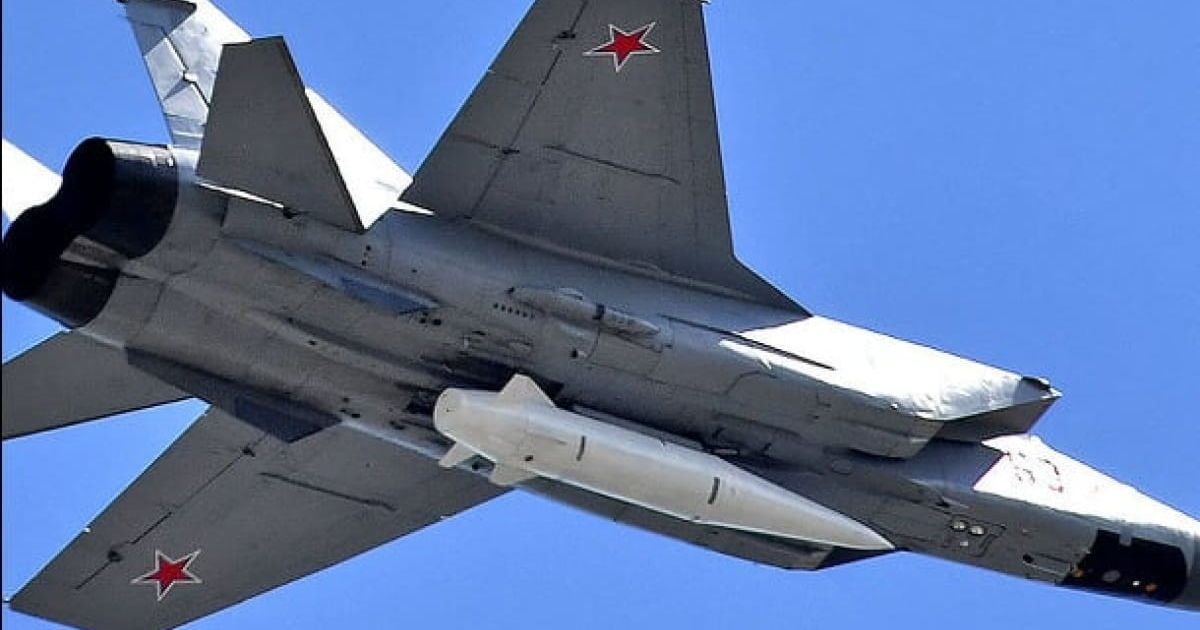Table of Contents
After it became known about the deployment of Wagner PMC militants on the territory of Belarus, the Polish authorities reported strengthening the eastern border of the country.
Initially, the relocation of the Wagner Group was proceeding rather slowly, as a new base was being constructed for them near Minsk. There were also reports of the leader of the mercenaries, Yevgeny Prigozhin, falling ill and allegedly undergoing surgery in Russia.
However, recently, the movement of Russian militants to Belarus has significantly accelerated. Furthermore, the mercenaries were stationed for training Belarusian soldiers at a range near Brest, right on the border with Poland.
There are risks that the Wagner mercenaries at the western borders of Belarus could become a catalyst for increasing tension.
Source: Maxar Technologies
Although the report from the American Institute for the Study of War (ISW) states that there are no signs that the mercenaries pose additional threats to Poland or Ukraine, partly due to the lack of heavy weapons, the official Warsaw continues to claim otherwise and reinforces the state border.
From crisis to crisis
In general, the first reason for Poland’s border reinforcement was a response to the escalation of pressure from migrants, which began in the autumn of 2021, even before Russia’s full-scale invasion of Ukraine.
As noted by the Minister of National Defense of Poland, Mariusz Błaszczak, it was a hybrid attack against Poland from the territory of Belarus, using migrants who were “invited by the Lukashenko regime to Belarus and then transported to the border and somehow encouraged to illegally cross the Polish border.”
At that time, a group of around 4,000 migrants from a temporary camp under the supervision of Belarusian officers was brought to the Bruzgi-Kuznica border crossing and prepared to storm the border with Poland.
Foreign individuals threw stones, bottles, pavement, and even stun grenades at the police and military personnel.
As a result of this, there were casualties among the service personnel on the Polish side.
“Two years ago, we ensured security at the border. In the middle of November, the Polish border near Kuznica Bialostocka was stormed, but it was held thanks to the previous security measures,” stated Błaszczak.
The measures are indeed impressive. Currently, the Polish-Belarusian border is guarded by officers from the Podlaski Border Guard Regional Unit (2,500 personnel) and Brest (2,000 personnel) garrisons. They are supported by officers from other regions of Poland, with a total formation strength of 15,000 individuals. If necessary, soldiers, territorial defense, and the police can provide additional support.
See also: Without remorse and regret: an interview with captives of the Wagner Group
In addition, last year, a physical barrier was completed along the Podlaski section of the border with Belarus — a 186 km-long 5.5-meter high fence made of steel panels topped with barbed wire. Moreover, at the beginning of June this year, the construction of an electronic barrier on the border with Belarus was completed.
However, this proved to be insufficient, all because of new guests on Belarusian soil.
The African experience for Belarus
In recent weeks, the migration pressure at the Polish-Belarusian border has started to increase once again.
A serious incident occurred in June near the post in Bialowieza when a group of foreigners attempted to illegally cross from Belarus to Poland. According to the authorities, they pelted the border guards’ vehicle with stones and bricks, causing damage.
And this is not the first such incident this year.
“We have been observing for quite some time that hybrid warfare is gaining momentum, and migration pressure is increasing. Last year, we had 15,700 attempts by migrants to illegally cross the border, and nearly 14,000 just in the middle of 2023,” explains Anna Mikhalska, the spokesperson for the Border Guard Service.
She adds that although migrants are not able to overcome the physical barriers currently in place at the border, they can be successful with support in the form of transportation, equipment, and tactics.
So, who can provide such support? The answer is evident — mercenaries from the Wagner Private Military Company sent to Belarus.
“Undoubtedly, the presence of the Wagner Group is an additional factor of threat,” confirms Mikhalska, emphasizing that this formation is trained, experienced in military actions, ruthless, and demoralized.
This sentiment is echoed by Poland’s Deputy Minister of Internal Affairs, Maciej Wąsik who was asked about the threats related to the presence of Wagner mercenaries in Belarus during an interview on TV Republika. He responded that these bloodthirsty mercenaries, who often have criminal backgrounds, can perform various tasks.
Source: The Ministry of Defense of Belarus
“They can do Lukashenko’s dirty work. They can push migrants towards the Polish border since they have good contacts in countries like Syria or Mali in North Africa. They have recruited people there already,” explained Wąsik.
Indeed, branches of Prigozhin’s company exist in many countries in Africa, the Middle East, and Latin America. This facilitates the organization and execution of immigrant movements towards Europe, including through Belarusian territory where the Wagner mercenaries are currently based. And for various provocations, they do not require heavy weapons, as highlighted by analysts from ISW.
That’s why Polish high-ranking officials are sounding the alarm, making relevant statements and emphasizing the new threats to the region.
“This is an element that is dangerous for Ukraine, and Ukrainians are aware of it. It can also be potentially dangerous for Lithuania, and ultimately, it can be dangerous for us as well. It may signify a new phase of hybrid warfare, a phase much more complex than what we have dealt with so far,” said Poland’s Deputy Prime Minister, Jarosław Kaczyński, after a meeting of the Committee of the Council of Ministers for National Security and Defense in June.
Apparently, Moscow’s actions could significantly weaken the security situation in the countries of the region. This is why threats from self-proclaimed Belarusian President Alexander Lukashenko, which he voiced during his meeting with Vladimir Putin in St. Petersburg, as well as statements from Russian political and military figures like Major General Andrey Kartapolov, could become a reality. Of course, unless preventive measures are taken.
That’s why Warsaw has started working on strengthening the eastern borders of the country.
As Kaczyński pointed out, this strengthening “involves increasing the presence of forces in the area and also enhancing various obstacles and fortifications to protect our border in case of an attack.”
“Of course, there is no absolute certainty, but security policy, by its nature, focuses on worst-case scenarios, and guided by this principle, we had to make such decisions,” added Kaczyński.
So, at the beginning of July, an additional 2,000 military personnel and 500 police officers from across the country arrived at the border with Belarus. In the town of Augustów, a new unit — a sapper battalion will be created to strengthen the eastern border and protect the so-called Suwałki Gap, as announced by the Minister of Defense, Mariusz Błaszczak, on July 23. According to the plans of the Polish Ministry of Defense, the first soldiers in the composition of the new battalion will be appointed by the end of this year.
The deployment of tactical nuclear weapons on the territory of Belarus was also added to this problem. According to Marcin Przydacz, the head of the International Policy Office of the Polish President’s Office, such a decision by the Kremlin increases instability.
“This is by no means necessary. It is a desire for escalation and creating additional tension. This is how the actions of the Russian side should be seen,” emphasized Przydacz. And it’s hard to disagree with that.
Therefore, considering the mentioned factors, the decision taken by the Polish government to strengthen the border was timely and correct. The same applies to the appeal to NATO member countries to deploy nuclear weapons on Polish territory.
As Jarosław Kaczyński pointed out, security policy, by its nature, focuses on worst-case scenarios. That’s why appropriate decisions are made.
Originally posted by Stanislav Zhelikhovskyi on European Pravda. Translated and edited by the UaPosition – Ukrainian news and analytics website
See also: Wagner is already in Belarus: who is in greater danger?






